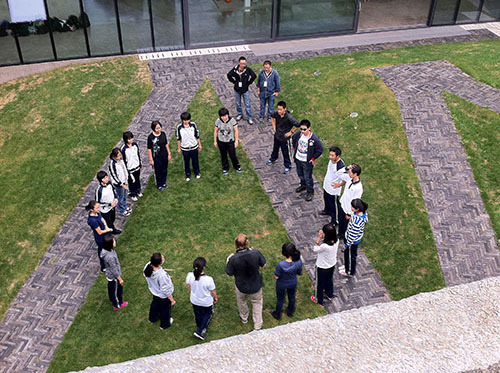
“As the Americans have the American Dream, the Chinese have the Chinese Dream, and education is the foundation.” — David Barrutia
“Diligence, Rigor, Democracy and Pioneering” is the school motto of Beijing No. 4 High School, founded in 1907 during the Qing Dynasty. To date, the school has taught over 35,000 Chinese and foreign students and is considered one of China’s leading secondary education institutions, which additionally caters to international students. The school is recognized for its top quality teachers, unique teaching philosophy and rich school culture. In addition to the main campus of Beijing High School No. 4 (BHSF), there is a newly established Beijing High School No. 4 International Campus (BHSFIC) that accepts Chinese as well as international students from South Korea, Japan, the US and the UK. In the high school main campus, there are around 1500 students in three grades (500 for each). This year, around 120 will go to American universities; i.e. about 25% of the whole senior student body. Meanwhile, 75% of the students, including 20-30 foreigners, will go to Chinese universities. BHSFIC has been a pioneer in the integration of Western and Chinese pedagogy for the developmental benefit of its students.
Yong Zhao, Andy Hargreaves and Alma Harris have given us some great insights into the cultural differences between East and West in this series. To talk about one of Beijing’s most prestigious public schools, I am joined today in The Global Search for Education by David Barrutia. David is US Relations Liaison Officer for Beijing No. 4 High School International Campus. He has lived in China for over ten years and has extensive experience in both the public and private sectors of Chinese education.

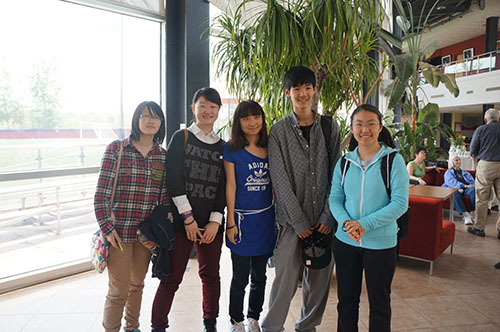
David, how would you define college-ready students at Beijing No.4 Public School? What are the skills your higher education system is looking for?
The longstanding focus of Beijing No 4 Public School has been to support students’ self-development, not just to be college-ready, but ready for life and all its challenges and opportunities.
Upon enrollment at BHSFIC, students are encouraged to (1) develop their skills in self-reflection, (2) apply their independent and critical thinking, and (3) search, discover and pursue their passions. These are critical skills for our students; skills that are more personal than test scores; skills to ensure they face life wholeheartedly and hold onto their dreams tightly.
As for the skills that the Chinese higher education system is looking for, that is a topic that is currently under public discourse due to recent policy changes. Unlike the American higher education application system, which is based on quantitative data and qualitative factors, the university application system in China, for various administrative and cultural reasons, is mainly based on quantitative measures – primarily the national higher education entrance examination known as the Gao Kao. Policy changes are afoot, but their implementation will be a different story.
For our BHSFIC (Beijing High School No. 4 International Campus) students who aim to study overseas, the American application system provides a broad platform from which they can express themselves holistically, including their interests, passions, thoughts, beliefs, idiosyncrasies, and happiness in life.

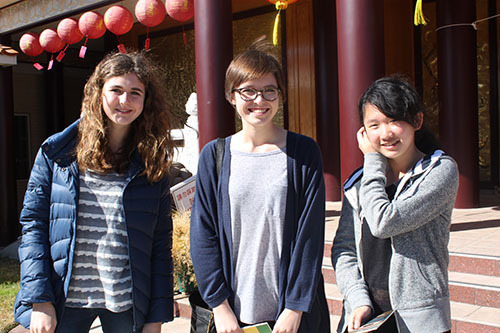
How much emphasis does Beijing No. 4 Public School put on standardized test scores vs. other attributes and accomplishments students might possess? What are your views on this?
In China, the role of standardized examinations in society dates back thousands of years, back to the time of imperial examinations, which were based on Confucian philosophical theory of testing. You could say tests are part of Chinese culture.
In modern China, from a public administration perspective, Chinese standardized tests like the Gao Kao are an important measure for schools; the average Gao Kao score of their students being an indication of a school’s academic standing. Naturally, competition among schools can inflate the importance of these tests, similar to how competition among American universities blow the US News & World Report rankings out of proportion.
At BHSFIC, where students prepare to take foreign standardized tests like the ACT, SAT, and TOEFL, the school expects students to prepare for those tests mostly on their own, but helps organize group trips to distant testing sites like Hong Kong and Singapore for the SAT. The school values and respects standardized tests, but still as only one among other standards that a student must develop to live a productive and fulfilling life.
What changes would you like to see at Beijing No. 4 Public School?
I would love to see more support for parents, especially in helping them understand the application learning process. The school regularly holds parent meetings in the form of educational lectures in order to teach parents about the American education system and the college application process. Much of the information is foreign to parents and there is so much misinformation outside in the private sector. Although it is the students who will inevitably go overseas, it is the parents as guardians who have been sacrificing and investing so much towards their children’s education. Yet, surprisingly, Chinese parents have little information about what truly lies ahead overseas for their only child. So, I would like to see BHSFIC take the lead among other public high schools to promote more parent education programming.

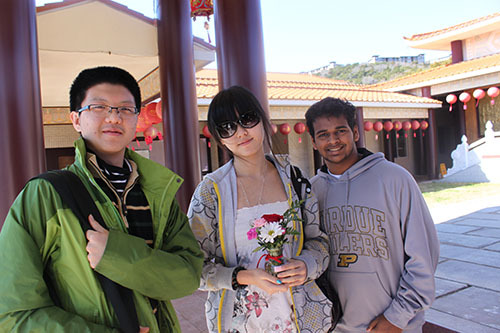
Many Chinese students seek to attend undergraduate university programs in the US and the UK? Why do they opt to study in the West versus local Chinese universities? Do you think this trend will change anytime in the near future?
The number of Chinese students going to study at undergraduate programs in the US and UK has been growing exponentially in the last few years, especially since 2008. The newer trend is that Chinese students going overseas are getting younger and younger. Private American college prep schools are being flooded with Chinese applications. Public American high schools are even seeing increases in Chinese student enrollment as well, as some local school districts issue more student visas to foreign students. This year, the explosive trend now is primary and middle school students coming to California for summer school. These trends are market-driven, they are fast-moving, with political intervention the only thing that could slow them down.
As for the reason more Chinese students study overseas, there is no one answer. Everyone has different circumstances, different goals, different lives. Fundamentally, education is the best investment for one’s personal and family betterment. Nowadays, as additional Chinese have larger spending power, more will invest in education. As the Americans have the American Dream, the Chinese have the Chinese Dream, and education is the foundation.
I would add that I have heard people say the reason so many Chinese students study in the US is because local Chinese universities are not good. That’s not a fair assessment. The statistics do not tell the whole story. While data shows an increasing number of Chinese students going to Western universities, this still represents only a small percent of the college-age population and some sub-trends can be lost in the sea of data. For example, while more students decide to study abroad, there are also more who increasingly doubt the merits of going abroad. Those students who are motivated to study abroad as a stepping-stone to a stable career, in particular, nowadays have second thoughts. As the job markets in the US and China have become more competitive, we see more top Chinese high school students preferring to study locally at top Chinese institutions like Qinghua University or Peking University over Ivy League schools; one of the main reasons being the connections and relationships they can cultivate with their classmates, professors and the local business community.
How do students prepare to become strong candidates for the application process to US schools?
A Chinese student from one corner of the country will be different from another corner. There are varying levels of differences. Take the word “dumpling” for example. In the English language, it is the word used to describe a whole array of Chinese filled treats, like Jiaozi, Zongzi, Baozi, Xiaolongbao,Hongdou Tong Yuan, and Xiao Mai, which although all equally delicious, are all very different from one another in terms of ingredients, cultural references and eating customs.
Likewise, each student has his/her own learning style, life priorities and time management. Broadly speaking, to become a strong candidate, everyone knows that they must do well in school grades and standardized tests. It is common for Chinese students and parents to place more weight on the tests. That is not to say that they choose to obsess about the tests; they just do not have any other experience to apply in this situation. The qualitative elements of a student that the US college application attempts to capture are new and less tangible concepts.
In many instances, Chinese students and parents are intimidated by the whole American college application process because it is conceptually so foreign to them. Just as Americans turn to companies like H&R Block to help fill out their tax forms every year, some Chinese families need help from private agents and consultants to deal with this strange document in another language.
For more information – http://www.bhsf.cn/

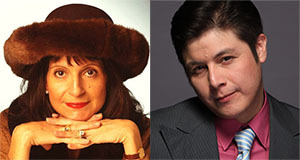
All photos are courtesy of Beijing No. 4 High School International Campus
For more articles in the East vs. West series: East vs. West Part 1, East vs. West — News from Malaysia, East vs. West — Face Time
Join me and globally renowned thought leaders including Sir Michael Barber (UK), Dr. Michael Block (U.S.), Dr. Leon Botstein (U.S.), Professor Clay Christensen (U.S.), Dr. Linda Darling-Hammond (U.S.), Dr. Madhav Chavan (India), Professor Michael Fullan (Canada), Professor Howard Gardner (U.S.), Professor Andy Hargreaves (U.S.), Professor Yvonne Hellman (The Netherlands), Professor Kristin Helstad (Norway), Jean Hendrickson (U.S.), Professor Rose Hipkins (New Zealand), Professor Cornelia Hoogland (Canada), Honourable Jeff Johnson (Canada), Mme. Chantal Kaufmann (Belgium), Dr. Eija Kauppinen (Finland), State Secretary Tapio Kosunen (Finland), Professor Dominique Lafontaine (Belgium), Professor Hugh Lauder (UK), Professor Ben Levin (Canada), Lord Ken Macdonald (UK), Professor Barry McGaw (Australia), Shiv Nadar (India), Professor R. Natarajan (India), Dr. Pak Tee Ng (Singapore), Dr. Denise Pope (US), Sridhar Rajagopalan (India), Dr. Diane Ravitch (U.S.), Richard Wilson Riley (U.S.), Sir Ken Robinson (UK), Professor Pasi Sahlberg (Finland), Professor Manabu Sato (Japan), Andreas Schleicher (PISA, OECD), Dr. Anthony Seldon (UK), Dr. David Shaffer (U.S.), Dr. Kirsten Sivesind (Norway), Chancellor Stephen Spahn (U.S.), Yves Theze (Lycee Francais U.S.), Professor Charles Ungerleider (Canada), Professor Tony Wagner (U.S.), Sir David Watson (UK), Professor Dylan Wiliam (UK), Dr. Mark Wormald (UK), Professor Theo Wubbels (The Netherlands), Professor Michael Young (UK), and Professor Minxuan Zhang (China) as they explore the big picture education questions that all nations face today. The Global Search for Education Community Page
C. M. Rubin is the author of two widely read online series for which she received a 2011 Upton Sinclair award, “The Global Search for Education” and “How Will We Read?” She is also the author of three bestselling books, including The Real Alice in Wonderland, is the publisher of CMRubinWorld, and is a Disruptor Foundation Fellow.
Follow C. M. Rubin on Twitter: www.twitter.com/@cmrubinworld




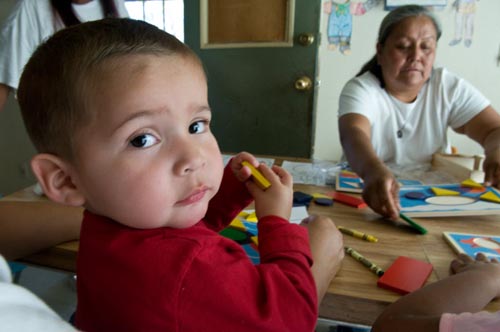

Recent Comments